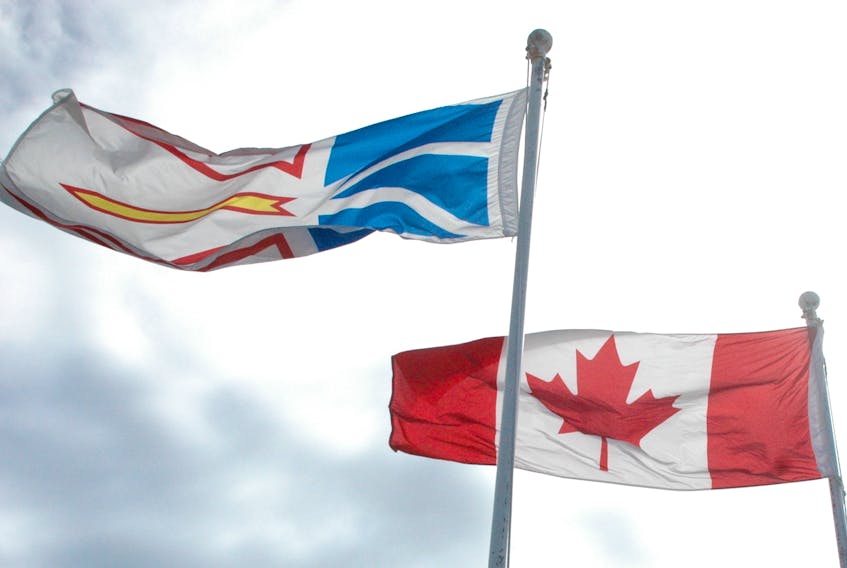By Brian Peckford
One of the ideas that the first premier of Newfoundland and Labrador liked to advance was how grateful we all should be because of Confederation.
Of course, having being one of the supporters of such an enterprise it was not surprising that he would utter such words after the project was successfully completed. And he reminded us all of this every chance he got, over decades in power.
And there was and is much to celebrate in being part of Canada.
But that does not mean that we should lie down and watch the “goodies” roll in.
We are, after all, a Confederation where powers are shared between the provinces and the federal government. Provinces have powers of taxation and primary responsibility in health and education and natural resource development. The province has obligations it must discharge.
It is in this context that I must address the recent commentary by Bob Hallett for CBC Newfoundland and Labrador.
While heathy commentary is long overdue in Newfoundland and Labrador, especially concerning the Muskrat Falls project and its disastrous impact upon the province, one is struck with the lateness of the intervention.
Individuals like Desmond Sullivan, Dave Vardy and Ron Penny have been lone wolves attempting to bring to the province’s attention the negative effects of this sad project. I had written the premier of the province in 2012 requesting an expert review panel. Sad that many arrive after the fact. I urged the present premier to have a forensic audit and, if the results showed trouble, to have a full inquiry. He rejected that at the time only to reverse course a few months later.
One of the themes running through our history is our inability to get ahead of the trends and arrest economic and financial trouble; to make questionable deals, from the railway, pulp and paper mills, terms of Confederation of the fishery, and the John Doyle and John Shaheed deals are some dramatic examples.
When we did do something right, like the reciprocity treaty with the U.S. in the late 1800’s, it was vetoed by Canada.
The failure of self-government led to having conditions placed on any help from Britain — that being the Amulree Commission and a Commission to govern us. We found ourselves at the mercy of others. Hence, little leverage.
A few years later we were promised a return to Responsible Government and then for the people to decide on the future. But, having little leverage, this did not happen. We found ourselves at the mercy of others.
The major flaw of Confederation in 1949 was the transfer of effective control of our main industry, the fishery, to Ottawa. That left us with little leverage. We found ourselves at the mercy of others.
And then we did another thing right, The Atlantic Accord, only we now allow ourselves to see its valuable provisions being eroded and weakened. What we gained we are allowing to be taken away as we speak.
The problem now, as before, is by putting ourselves in a very vulnerable position we are at the mercy of others and then agreement will be to the benefit of others — and only sufficient to keep us afloat.
It was the hope that the Atlantic Accord saw us crossing the Rubicon and not being as vulnerable anymore, forced to go cap in hand to others, that we had broken that historic trend.
Hence , what must be done first in order to be able to bargain with at least some cards in our arsenal is to get our own house in order. Then we can call upon all that moral argument and other reasons why the federal government should assist again.
You have little leverage when our spending is out of control and we have the largest spending on the public sector in Atlantic Canada, according to a report by Atlantic Institute for Market Studies. Rather than use the oil revenues (over $20 billion in royalties alone) wisely and prioritize, the province saw everything as a priority. It is this that Hallett and others who think like him need to address first so we do not find ourselves in the same boat as the 1930s and in 1949. Ironically, My first book (1982) was entitled “The Past In The Present.”
There was one incident in the more distant past when we stood up and made a difference for our place. It was in the 1850’s when the then premier and the leader of the Opposition went to London and had the Colonial Secretary, Henry LaBouchere, cancel provisions of an agreement that would have increased fishing privileges to France.
Newfoundland and Labrador must use that spirit again to:
• Acknowledge our billion-dollar mistake;
• Stop ceding what has already been won;
• Show prudence and financial responsibility in discharging our obligations as a province.
Then — and only then — shall we break from the past and have some leverage to right the ship and seek Ottawa’s assistance.
Brian Peckford served as Newfoundland and Labrador’s third premier, serving from 1979-89. He writes from Parksville, B.C.
RELATED:









